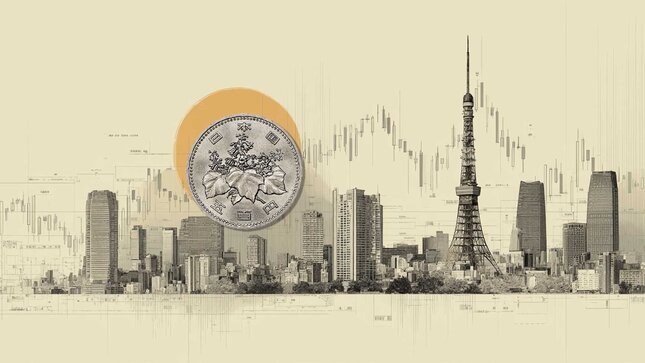If you are an American of a certain age and have played organized sports in your youth you have no doubt heard your football/soccer/baseball/tennis coach utter the inimitable phrase, “Son, winners never quit and quitters and never win.”
This was always uttered in long Southern drawl (I went to high school in Virginia) and usually with the certainty afforded only to the Ten Commandments.
Needless to say, that is the stupidest advice ever. In capital markets where quitting is not only necessary but vital to the very survival of your capital.
I know. I know. In our Anglo-Saxon Protestant work ethic culture we are all taught to “stand our ground”. To fight rather than flee. And this is why almost every famous investor fails miserably in the end. Don’t believe me? Tudor Momentum Fund Ltd has returned a whopping 2.24% since its inception in 2009. Bridgewater has posted 4.5% per annum since 2005. The S&P during the same timespan? 10.29%. So like 228% more. Tiger Global which was touted as some of the smartest money on Wall Street lost 34% this year and went from outperforming the S&P to underperforming it not just for this year but over TWENTY YEAR span with this one really bad stumble. I could go on but it's just too easy and you get the point.
Quitting in capital markets is a vice not a virtue. Quitting your trades via stops. Quitting your strategies when the market regime changes. Quitting your fundamental bias when the economic facts prove you wrong.
This is of course a lot easier said than done. We are all culturally programmed to not quit, especially when it comes to us of the weaker sex who perceive making a mistake as a stain of shame on our masculinity. Yet every great military tactician from Sun Tzu onward will tell you that a retreat is often the best path to victory. Ask the Afghans, ask the Ukrainians. Ask any smaller foe that was able to defeat the bigger opponent. But when it comes to trading we all seem to forget that there is no bigger opponent than the market. No one can defeat the market. If you are on the wrong side of the trade it will eventually bury you. This is why so many famous investors like LTCM, Melvin Capital and Amaranth can go from making money for years to losing everything overnight. Oh.., and Bill Hwang anyone?
Quitting is not only crucial when you trade, but actually makes you a much better trader by forcing you to appreciate ideas that are antithetical to your original beliefs. All my life I have been a fade trader. I am much more comfortable buying bottoms and selling tops. This, I am sure, was not a result of any genius, but simply a quirk of my personality which abhors all institutional authority ( so what better way to express that then by always being on the opposite side of the move?)
But at the start of this year I stumbled across some very interesting equity research that showed unequivocally that stocks are a long biased asset on an intra-day basis. In fact over the past three years the upside skew has been so ridiculously large that it's like trading a 60-40 coin. It is basically a license to print money. Still, many traders refuse to acknowledge this fact and I was one of them. Until eventually I changed my strategy from just trading reversals to trading reversals and continuations. Guess how that is working out?
As Larry David would say, “Pretty, pretty good.”
Yet this late life conversion to “quit” my old mean reversion ways has had a deeper, more profound effect on my ability to analyze the market. For example while the long side bias is working now, I am fully mindful that it may disappear at any time. Like a true stoic I am learning to accept the world as it is rather than the way I wish it to be and that will hopefully keep in the game for much longer.
“Quitters never win” is dumb cliche and in my opinion should be replaced with more nuanced “winners need to change.”
Past performance is not indicative of future results. Trading forex carries a high level of risk, and may not be suitable for all investors. The high degree of leverage can work against you as well as for you. Before deciding to trade any such leveraged products, you should carefully consider your investment objectives, level of experience, and risk appetite. The possibility exists that you could sustain a loss of some or all of your initial investment and therefore you should not invest money that you cannot afford to lose. You should be aware of all the risks associated with trading on margin, and seek advice from an independent financial advisor if you have any doubts.
Editors’ Picks

EUR/USD: US Dollar to remain pressured until uncertainty fog dissipates Premium
The EUR/USD pair lost additional ground in the first week of February, settling at around 1.1820. The reversal lost momentum after the pair peaked at 1.2082 in January, its highest since mid-2021.

Gold: Volatility persists in commodity space Premium
After losing more than 8% to end the previous week, Gold (XAU/USD) remained under heavy selling pressure on Monday and dropped toward $4,400. Although XAU/USD staged a decisive rebound afterward, it failed to stabilize above $5,000.

GBP/USD: Pound Sterling tests key support ahead of a big week Premium
The Pound Sterling (GBP) changed course against the US Dollar (USD), with GBP/USD giving up nearly 200 pips in a dramatic correction.

Bitcoin: The worst may be behind us
Bitcoin (BTC) price recovers slightly, trading at $65,000 at the time of writing on Friday, after reaching a low of $60,000 during the early Asian trading session. The Crypto King remained under pressure so far this week, posting three consecutive weeks of losses exceeding 30%.

Three scenarios for Japanese Yen ahead of snap election Premium
The latest polls point to a dominant win for the ruling bloc at the upcoming Japanese snap election. The larger Sanae Takaichi’s mandate, the more investors fear faster implementation of tax cuts and spending plans.
RECOMMENDED LESSONS
Making money in forex is easy if you know how the bankers trade!
I’m often mystified in my educational forex articles why so many traders struggle to make consistent money out of forex trading. The answer has more to do with what they don’t know than what they do know. After working in investment banks for 20 years many of which were as a Chief trader its second knowledge how to extract cash out of the market.
5 Forex News Events You Need To Know
In the fast moving world of currency markets where huge moves can seemingly come from nowhere, it is extremely important for new traders to learn about the various economic indicators and forex news events and releases that shape the markets. Indeed, quickly getting a handle on which data to look out for, what it means, and how to trade it can see new traders quickly become far more profitable and sets up the road to long term success.
Top 10 Chart Patterns Every Trader Should Know
Chart patterns are one of the most effective trading tools for a trader. They are pure price-action, and form on the basis of underlying buying and selling pressure. Chart patterns have a proven track-record, and traders use them to identify continuation or reversal signals, to open positions and identify price targets.
7 Ways to Avoid Forex Scams
The forex industry is recently seeing more and more scams. Here are 7 ways to avoid losing your money in such scams: Forex scams are becoming frequent. Michael Greenberg reports on luxurious expenses, including a submarine bought from the money taken from forex traders. Here’s another report of a forex fraud. So, how can we avoid falling in such forex scams?
What Are the 10 Fatal Mistakes Traders Make
Trading is exciting. Trading is hard. Trading is extremely hard. Some say that it takes more than 10,000 hours to master. Others believe that trading is the way to quick riches. They might be both wrong. What is important to know that no matter how experienced you are, mistakes will be part of the trading process.
The challenge: Timing the market and trader psychology
Successful trading often comes down to timing – entering and exiting trades at the right moments. Yet timing the market is notoriously difficult, largely because human psychology can derail even the best plans. Two powerful emotions in particular – fear and greed – tend to drive trading decisions off course.


